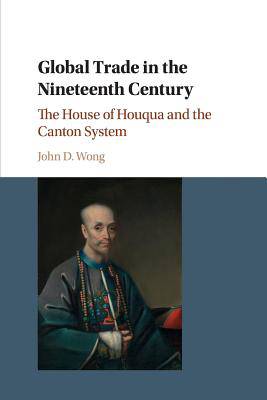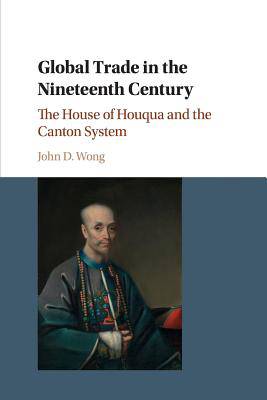
- Afhalen na 1 uur in een winkel met voorraad
- Gratis thuislevering in België vanaf € 30
- Ruim aanbod met 7 miljoen producten
- Afhalen na 1 uur in een winkel met voorraad
- Gratis thuislevering in België vanaf € 30
- Ruim aanbod met 7 miljoen producten
Zoeken
Global Trade in the Nineteenth Century
The House of Houqua and the Canton System
John Wong
Paperback | Engels
€ 60,95
+ 121 punten
Uitvoering
Omschrijving
In this engaging new study, John D. Wong examines the Canton trade networks that helped to shape the modern world through the lens of the prominent Chinese merchant Houqua, whose trading network and financial connections stretched from China to India, America and Britain. In contrast to interpretations that see Chinese merchants in this era as victims of rising Western mercantilism and oppressive Chinese traditions, Houqua maintained a complex balance between his commercial interests and those of his Western counterparts, all in an era of transnationalism before the imposition of the Western world order. The success of Houqua and Co. in configuring its networks in the fluid context of the early nineteenth century remains instructive today, as the contemporary balance of political power renders the imposition of a West-centric world system increasingly problematic, and requires international traders to adapt to a new world order in which China, once again, occupies center stage.
Specificaties
Betrokkenen
- Auteur(s):
- Uitgeverij:
Inhoud
- Aantal bladzijden:
- 259
- Taal:
- Engels
Eigenschappen
- Productcode (EAN):
- 9781316605011
- Verschijningsdatum:
- 21/12/2017
- Uitvoering:
- Paperback
- Formaat:
- Trade paperback (VS)
- Afmetingen:
- 152 mm x 229 mm
- Gewicht:
- 353 g

Alleen bij Standaard Boekhandel
+ 121 punten op je klantenkaart van Standaard Boekhandel
Beoordelingen
We publiceren alleen reviews die voldoen aan de voorwaarden voor reviews. Bekijk onze voorwaarden voor reviews.











